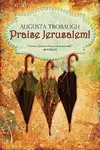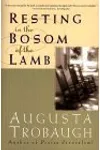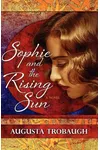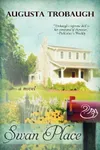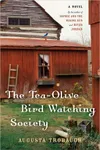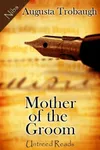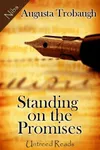Picture a Southern storyteller weaving tales of love, race, and resilience against the humid backdrop of Georgia’s small towns—meet Augusta Trobaugh! With her lyrical prose and knack for capturing the heart of the American South, Trobaugh has carved a niche in Southern literature. Her standout novel, Sophie and the Rising Sun, is a poignant exploration of forbidden love and cultural divides, proving that even quiet stories can resonate deeply.
Born with a passion for storytelling, Trobaugh’s work reflects the complexities of human connection, often set in sleepy towns where everyone knows your business. Her ability to blend empathy with sharp social commentary makes her a hidden gem in the literary world, inviting readers to see the South through a compassionate lens.
The Making of Augusta Trobaugh
Little is publicly known about Augusta Trobaugh’s early life, but her roots in the American South deeply inform her writing. Holding a Master of Arts degree from the University of Georgia, with a focus on American and Southern literature, she honed her craft with an academic lens. This scholarly foundation, combined with her love for the South’s oral storytelling tradition, shaped her into a writer who could distill universal truths from small-town life. Her career gained traction with support from the Georgia Council of the Arts, which funded her evocative narratives.
Augusta Trobaugh’s Unforgettable Stories
Trobaugh’s novels are like sipping sweet tea on a porch—comforting yet revealing. Her most celebrated work, Sophie and the Rising Sun (2001), is a tender love story set in 1941 Salty Creek, Georgia. It follows Sophie, a spinster, and Mr. Oto, a Japanese-American gardener, whose budding romance is tested by prejudice after Pearl Harbor. Critics praised its poetic prose and vivid characters, with the Spartansburg Herald-Journal calling it a “gem” for Southern literature lovers.
Other notable works include Praise Jerusalem!, a semi-finalist in the 1993 Pirates Alley Faulkner Competition, which explores faith and community with heartfelt depth. Resting in the Bosom of the Lamb delves into family secrets, while Swan Place tackles racial tensions with grace. Trobaugh’s style is marked by elegant simplicity, rich metaphors, and a focus on marginalized voices, making her stories both accessible and profound.
Her narratives often weave themes of love, race, and resilience, reflecting the South’s complex history. By giving voice to characters like Japanese-Americans or domestic workers, Trobaugh challenges stereotypes, though some critics note her minority characters occasionally lean on familiar tropes. Still, her storytelling remains a masterclass in empathy and atmosphere.
Why Augusta Trobaugh Matters
Augusta Trobaugh’s impact lies in her ability to humanize the South’s struggles, making her a quiet but vital voice in Southern literature. Her novels, especially Sophie and the Rising Sun, offer timeless lessons on love and courage in the face of prejudice. By spotlighting overlooked perspectives, she fosters understanding, encouraging readers to bridge cultural divides. Her work, though not as widely known as some contemporaries, continues to inspire those who discover her lyrical tales.
Trobaugh’s legacy is her reminder that small-town stories can carry universal weight. Her novels remain a testament to the power of storytelling to heal and connect, earning her a cherished place among Southern literature enthusiasts.
- Key Works: Sophie and the Rising Sun, Praise Jerusalem!, Resting in the Bosom of the Lamb, Swan Place
- Education: Master of Arts, University of Georgia (American and Southern Literature)
- Recognition: Funded by the Georgia Council of the Arts; semi-finalist in the 1993 Pirates Alley Faulkner Competition
Snag Sophie and the Rising Sun and dive into Augusta Trobaugh’s soulful Southern world—your heart will thank you!
